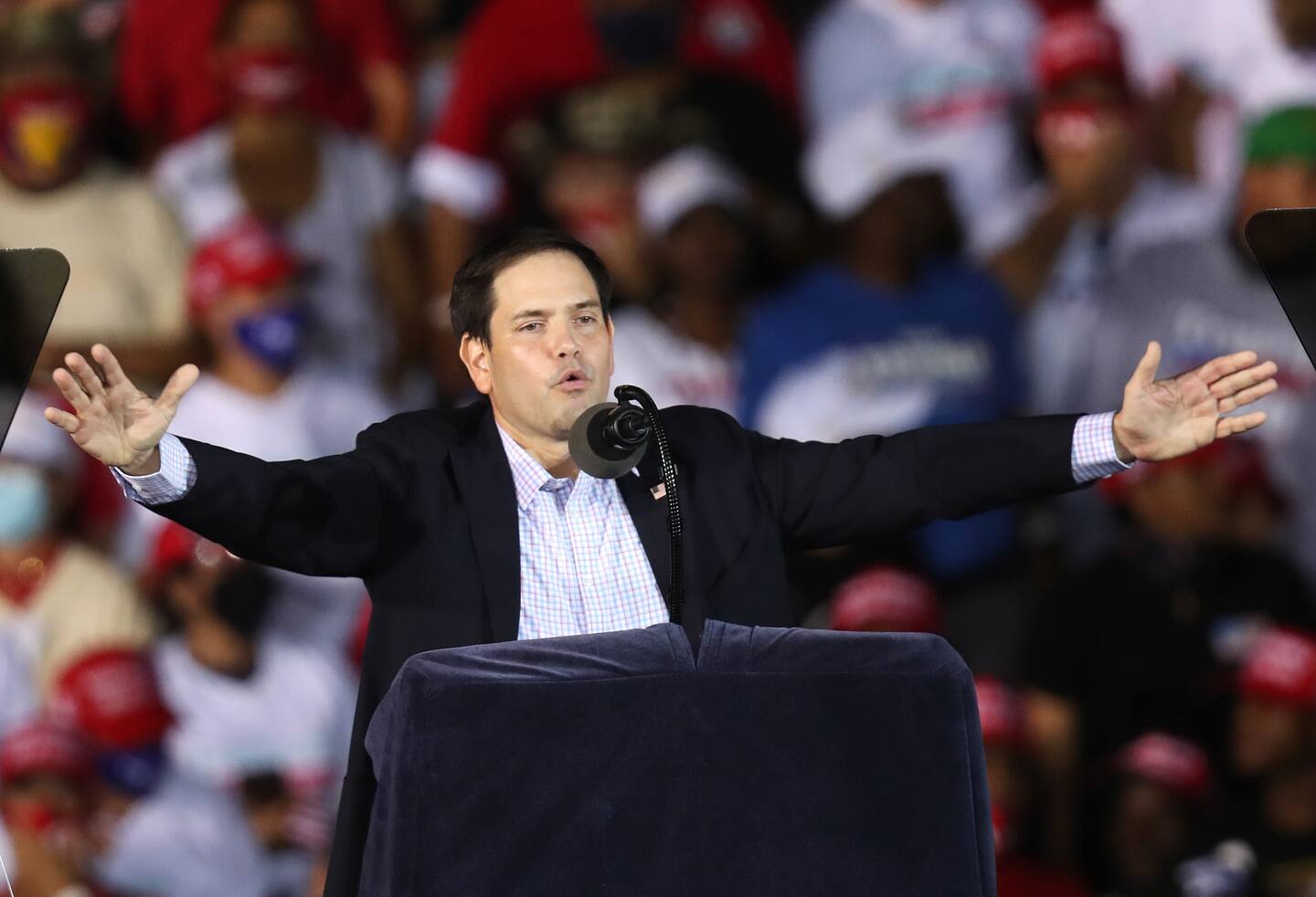2024 hopefuls in the Senate are taking a Trump-like approach to their early Biden opposition

The common thread of their tweets: a populist-like resistance to the educated, steeped-in-government expertise that Biden wants to shape his government with. “Biden’s cabinet picks went to Ivy League schools, have strong resumes, attend all the right conferences & will be polite & orderly caretakers of America’s decline,” Rubio tweeted, in part.
What these senators didn’t mention is that they voted for Trump’s Cabinet, which was filled with people who went to Harvard and Yale and other Ivy League schools. As they accused Biden’s picks of being too friendly or too dependent on China, it was Trump who gave China the benefit of the doubt on the coronavirus and other issues as he tried to close a trade deal with the country.
There are other Republicans outside Congress who want to be president, but this handful of senators gets to tangle with Biden out of the gate because of their job voting on his Cabinet nominations.
That means they will interact with Biden and could make his presidency harder. Some likely possibilities on how that will play out:
They could vote against his Cabinet picks
The Senate approves a president’s high-level administration officials. If Republicans maintain the majority after two Georgia Senate runoffs in January, then Biden’s administration is in their hands. There’s a split within the Republican Party about whether Biden should be allowed his team — or whether Republicans should fight his nominees.
It’s a less difficult decision for those who want to run against Biden in 2024.
It would be bad politics, especially in this unforgiving, hyperpartisan environment, to vote for Biden’s picks. So they criticized them, essentially, as too elite. (Though a number of them had elite educations of their own.)
There could be other Republicans who vote alongside Democrats to approve Biden’s Cabinet, helping him get the majority vote he needs for each one. But it probably won’t be these guys. (The Washington Post reported the Biden transition team is discussing the possibility of just appointing some Cabinet secretaries in an acting capacity, as Trump did, to avoid a Senate vote.)
They’re likely to take issue with Biden’s ‘America is back’ foreign policy philosophy
Biden made clear this week he wants to reenter or re-form trade alliances, strengthen global relationships and reengage with the world on climate change. “America is back,” he said Tuesday as he announced some of his national security and foreign policy choices.
It’s a potential political risk. My colleagues write that Democrats are well aware Trump won in 2016 as he trashed international trade, climate and military agreements, framing these as an assault on America’s working class.
Republicans who want to run for president in the Trump era know this, too. Given their opposition to Biden’s Cabinet choices, they could be skeptical of Biden’s global re-engagement and try to block it any way they can. Biden doesn’t need Congress to sign off on everything he wants to do: He is already planning executive orders to rejoin the Paris Climate accords and the World Health Organization.
But if he were to pursue any trade deals, or get back into the Iran nuclear agreement, as he has signaled he wants to, he will need the Senate’s approval.
They could spend the next four years driving at class divisions
We’re already seeing the seeds of this planted in those remarkably similar tweets criticizing Biden’s top Cabinet nominees. These senators are trying to frame Biden as the president of the educated, coastal class. It’s an attack Republicans have used on Democratic congressional leaders, many of whom are from California or New York.
Biden campaigned heavily on reaching out to the same voters Trump appealed to. In the end, there was a pretty clear class division between the parties. Biden won college-educated voters, and Trump won non-college-educated voters and in more White working-class areas.
Trump lost the presidential election, but he also got more votes than any other Republican candidate. The Republicans who want to run for president logically want to follow his playbook, and they’re signaling a big part of that is to drive at these class divisions. In contrast to Biden’s well-educated base, they’ll be the champions of working America. (Sound familiar to the outgoing president’s message?)
One immediate question for senators who want to be president is whether they — and actually politicians on both sides — can set aside this political framing to pass coronavirus relief legislation or help in other ways to bolster the economy. Biden and Senate Majority Leader Mitch McConnell (R-Ky.) have both said that’s a priority, though they differ vastly on how much to spend to do it.
Their anti-Biden posture could have influence on the rest of the Republican caucus
These senators have an incentive to be the loudest voices opposing Biden, given they’re hoping to unseat him in 2024. Do others in Congress follow along? One reason Senate Republicans are averse to Democrats’ bigger spending package on coronavirus relief is because a sizable group doesn’t think the government needs to spend any money at all to help Americans and cities and states right now.






